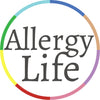Environmental allergies occur year-round and not just during certain seasons.
Where seasonal allergies have a higher occurrence during certain seasons of the year, environmental allergies can be more prevalent through internal or external conditions or changes in the weather, temperature, humidity, dampness, moisture, cleanliness and other such factors.
These conditions or changes may lead to a higher occurrence for certain allergen containing substances, which may lead to a person with certain allergies having mild to severe allergic reactions.
The most common environmental allergens that cause reactions are-
Dust Mites
Dust mites are one of the most common indoor environmental allergens. Classified as arthropods they can live all year long in warm, humid places such as soft furnishings in your home such as; mattresses, drapes and furnished couches.
They also aren't usually airborne and only become airborne during dust raising activities such as house cleaning.
For more information on dust mites click here
Pollen
A Pollen Allergy occurs when there is an immune response to pollen from grasses, weeds or trees, with trees usually pollinating in late winter and early spring.
A Pollen Allergy commonly triggers Allergic Rhinitis (also called Hay Fever). This can lead to symptoms that may include sneezing, a runny nose, a blocked or itchy nose, and watery or itchy eyes.
A Pollen Allergy is an environmental allergy and can occur all year-round. However, it is also a seasonal allergy that can have a higher occurrence during certain seasons such as spring and summer.
A Pollen allergy can also have increased symptoms based on the type of pollen the person is allergic to and based on where they live.
For more information on pollen allergies click here
Mould
A Mould allergy reaction occurs when mould is inhaled or ingested. Damp walls, cellars, bathrooms, basements, attics, washing machines, rubbish bins, stale foods and humidifiers are just some of the many places where mould may develop and be found.
In everyday life it is quite common to be exposed to mould and people can generally notice the signs, for example it can be noticed by fuzzy green spots on food or dark markers on a wall corner in a dark place.
For more information on mould allergies click here
Pets/Animals
Pet/Animal Allergies are quite common, especially from Dogs and Cats.
A reaction occurs when contact is made from the dander, saliva or urine/feces, which can lead to unpleasant symptoms such as allergic rhinitis or even aggravate asthma symptoms (for people with pre-existing conditions).
For more information on pet/animal allergies click here
Insects
An insect allergy can be caused through stings, bites and debris.
Insect allergies can lead to mild to severe and life-threatening reactions. However, not all reactions are allergic and may just cause irritation of the skin.
For more information on insect allergies click here
SYMPTOMS
The symptoms of environmental allergic reactions vary based on the type of allergy and also the individual. Some common symptoms may be characterised by:
- Eczema
- Rashes and scratching
- Sneezing
- Watery eyes
- Mucous in throat
- Allergic rhinitis
- ‘Allergic salute’ (in a child, persistent upward rubbing of the nose that causes a crease mark on the nose)
- Coughing
- Postnasal drip
- Asthma Aggravation
- Anaphylaxis
The validity and severity of these symptoms are dependent on the individual and the level of exposure, as determined by a qualified health care provider.
TREATMENT
If you experience or are in the presence of someone who encounters a serious reaction (this may include difficulty breathing, wheezing, throat tightening, swelling, collapse, etc), follow their action plan or emergency instructions and call or have someone call Triple Zero (000) immediately.
Adrenaline (Epinephrine) is the first-line treatment for Anaphylaxis. After administering Adrenaline (Epinephrine), seek emergency medical attention by calling Triple Zero (000) for an ambulance.
If you are unsure what to do, call Triple Zero (000).
If you or someone you know is suspected of having an allergy, it’s important to discuss diagnosis, symptoms and treatment with a qualified health care provider to understand how to manage individual allergies and also to set up an Allergy Action Plan in the case of a reaction.
Always present your Allergy Card, Medical Alert Bracelet, Action Plan or Necklace to ensure health care providers, family members, friends, colleagues and others are aware of your Allergies.
FINAL THOUGHTS
It is always important to be aware of when there is an Allergy Risk Situation (ARS) arising in the environment, and how to avoid it (and avoid a reaction).
The steps you can take include setting up your contingency plans to be prepared in the case of a reaction (contact triangle, medication, etc), having an action plan, carrying an Allergy Card so people around you know about it, and any other steps to protect yourself from having a reaction.
And whatever your reason for reading this insight, whether it is for you or a loved one, it's important to consult your local health care provider for more information on allergic reactions, triggers, diagnosis, examination, treatment and management strategies. Plus, they will be able to set up an individual Action Plan based on managing your environmental allergies.
The information provided on Allergy Life Australia is to generally educate and inform you about living with allergies, intolerances and conditions, and is not intended as medical instruction or as a substitute for diagnosis, examination and advice by a qualified health care provider.




